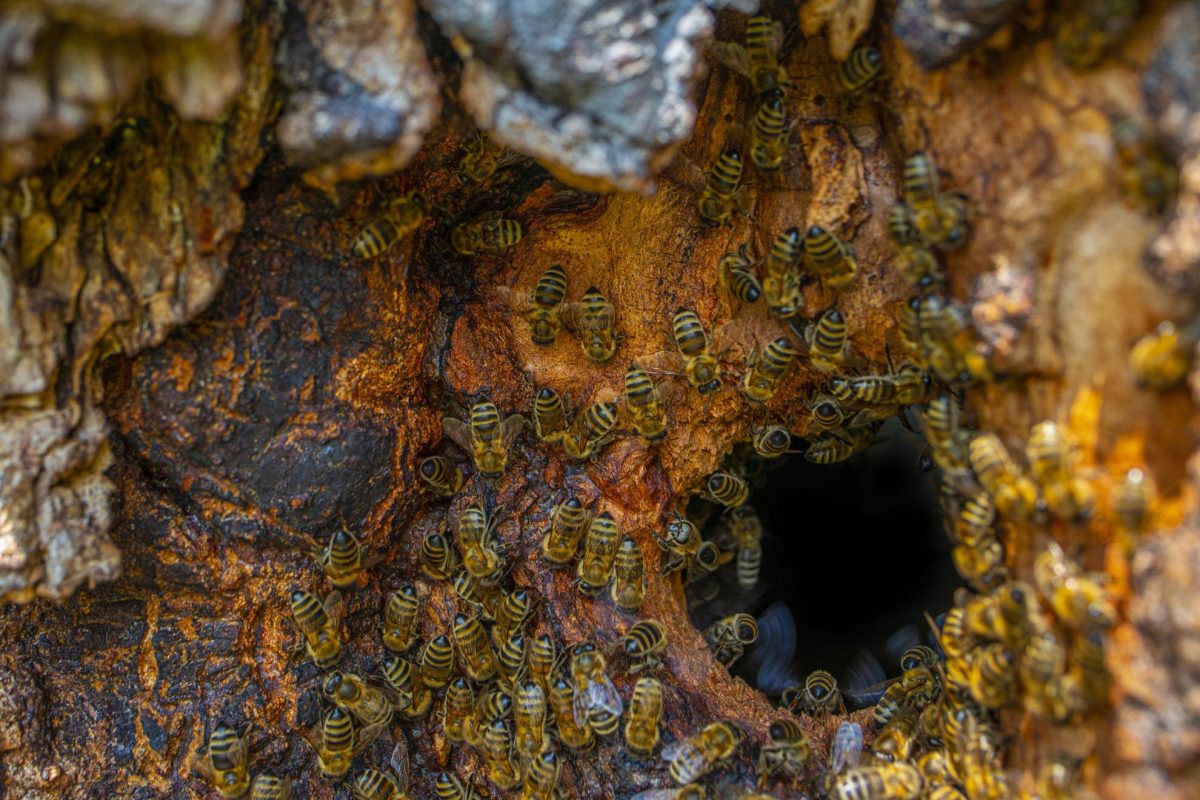About Tree Bee Rescue and the Wild Honeybee Conservation Project
Many of us have seen urban beehives or heard about seen photos of large bee keeping sites. But what about wild honeybees living in their natural environment? Sadly, we don’t know how many honeybee nests there are in the wild across the UK, but we do know their population is dwindling. Our food supply and eco-system relies on these wild bee nests.
Our rescue and rewilding project will help ensure wild honeybee nests can be rehomed to maintain a wild colonies’ evolutionary development.
Our conservation project will discover and document the locations of wild honeybee nests in trees across the UK.
Why rescue the honeybee nests in trees?
Wild honeybees in the UK typically live within the confines of a hollow tree, encouraging only medium to small sized colonies. Colonies of this size only remove a proportion of the pollinator food resources within the 3-mile radius bees fly to collect their food.
Wild colonies of such size therefore do not grow in ever-expanding, manufactured wooden boxes. This means the colonies are small and less likely to exhaust the local area of pollinator foods. Too many bees in one area can have a detrimental affect on the local environment.
Report A Tree Bee Location BOOK A TREE BEE COLLECTIONWe need to pinpoint the exact location of wild honey bee colonies in trees to:
- Document the number and spread of wild honeybee colonies throughout the UK
- Help conserve these colonies
- Investigate contaminates within these colonies and document the chemical footprint of local areas
- Support the rewilding of wild honeybee colonies into appropriate locations
Bees crave the warm, sheltered, safe space of a hollow tree trunk. Colonies will remain for many generations in a tree that could have already taken a hundred years to grow
BeesMAX’s rewilding programme
BeesMAX provides the process to maintain a wild colonies’ evolutionary development, enabling them to continue living as closely aligned as possible to the UK’s natural weather patterns.

